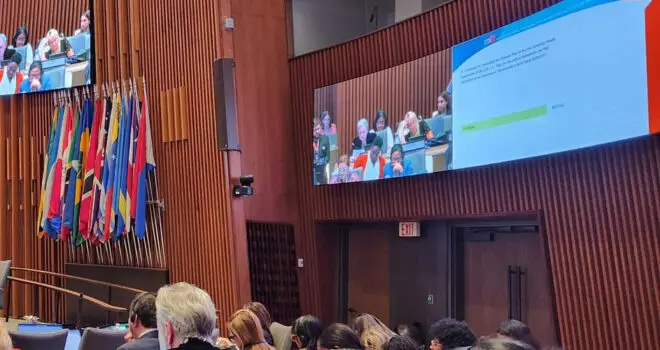On 28 January, World Heart Federation’s Alastair White delivered a statement on the Health Systems agenda item at the 138th Session of the World Health Organization Executive Board in Geneva.
The WHF statement he delivered focused on how reducing global shortages of essential medicines will require innovative solutions to ensure accessibility, affordability and adherence. One such WHF believes could be particularly effective for cardiovascular health is a fixed dose combination pill.
Q&A with Alastair White, Advocacy Assistant, WHF
This short Q&A with Alastair provides information on the global shortage of certain cardiovascular disease (CVD) medicines and medicines for children with rheumatic heart disease (RHD).
Which CVD medicines are experiencing global shortage?
In short, all of the key medicines to prevent and control CVD and cardiovascular events (including aspirin, statins, and beta-blockers) remain unavailable in many parts of the world. Global shortages and stockouts of CVD medicines are very concerning – millions of people cannot access the lifesaving medicines they need to prevent and control heart disease, despite most essential medicines for CVD being available as cost-effective generic drugs.
Why is the WHF recommending a fixed dose combination (FDC) pill to combat global shortage of CVD medicines?
Numerous studies have demonstrated improved adherence with FDCs, and such a pill could also simplify supply chains by reducing packing and shipping costs and preventing low supply of individual components. From the patient’s perspective, an FDC is cheaper and easier to access and use than taking several different pills per day.
What about medicines for children with RHD?
BPG (benzathine penicillin G) is mentioned several times in the WHO’s report on access to children’s medicines. BPG is the essential antibiotic for secondary prophylaxis of rheumatic fever. Monthly injections can prevent the progression of rheumatic fever to RHD, a preventable disease that begins in childhood and affects 32 million people globally. However, stock outs are common worldwide, including those in South Africa, Brazil, Cambodia and Timor-Leste this year.
Missing even a single dose of BPG raises the risk of recurrent rheumatic fever. Therefore, WHF is calling for more focus on this essential medicine through our statement at the Executive Board.


